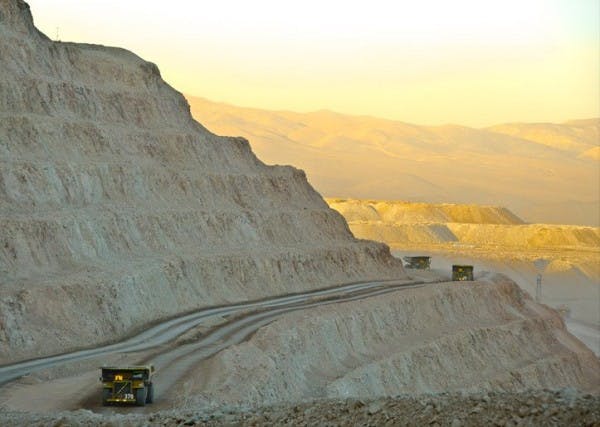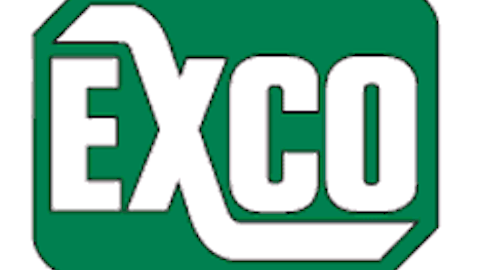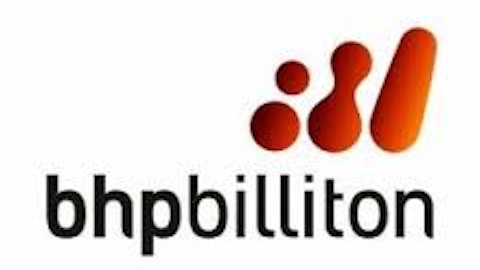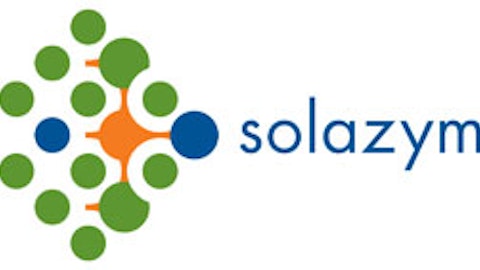Several major integrated oil and gas companies are in a rough spot — they just can’t seem to meet production goals. In 2013, Exxon Mobil Corporation (NYSE:XOM) expects total production to decline by about 1%, and it isn’t the only one hurting. The one distinct advantage these big oil companies have is a mountain of cash to buy a company or two. It is the fastest way to get a boost in production without rolling the dice on a new speculative play.
The one risk a company has with an acquisition is that it could overpay for the asset, and then the production gains would be offset by the price tag. Let’s take a look at a simple calculation that can help evaluate the value of a company, and then see what natural gas companies could be had for a deep discount.
Getting bang for your buck

While there are certainly some very complicated methods for evaluating an energy company, a quick and dirty method is to see how the enterprise value of the company (all equity and debt minus cash) compares to the total proved reserves on the company’s books. For example, when BHP Billiton Limited (ADR) (NYSE:BHP) bought independent gas company Petrohawk back in 2011, it paid $12.1 billion for a company that had 3.4 trillion cubic feet of natural gas in proven reserves. This means that the company paid about $3.55 per thousand cubic feet of natural gas for the company’s reserves. Based on an S&P Capital IQ screen of exploration and production companies with a total enterprise value of $1 billion-$15 billion, an average company in this space would have an enterprise value per thousand cubic feet equivalent of $6.65. So based on this metric, its seems as though BHP Billiton Limited (ADR) (NYSE:BHP) got a pretty good deal.
Since oil and gas price spreads have deviated so far from a BTU-equivalency basis, its not as effective to use this metric when evaluating oil-heavy companies. If you want to do your own calculations, be sure to use per-barrel oil equivalency for oil-heavy companies. Also, If you want to see a couple liquids-heavy assets that could be acquisition targets, click here. Based on this calculation, here are three natural gas companies trading at a deep discount:
Ultra Petroleum Corp. (NYSE:UPL)
Ultra certainly hasn’t seen any love lately. Natural gas prices have fallen, and so has the share price of Ultra. Despite being one of the low-cost producers in the space, Ultra Petroleum Corp. (NYSE:UPL) has an enterprise value per thousand cubic feet equivalent of about $1.67. Not only is the company valued much lower than its peers, but it’s value is less than half of what a thousand cubic feet of natural gas trades for at the Henry Hub spot price.
What is even more surprising about this low price tag is that the company may be sitting on much, much more gas than what is on its proven reserves. The company has just barely begun to tap its 260,000 acres in the Marcellus Shale, and its runway for the Jonah field in Wyoming is proving to be quite long. With a total enterprise value of $4.9 billion, it could be a ideal pickup for a company like Chevron Corporation (NYSE:CVX), which has stated that it hopes to boost production by 20% between now and 2017 through a large push in unconventional shale plays like the Marcellus.



